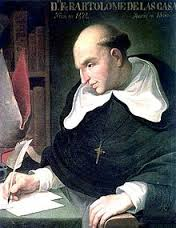slavery
Priest, Josiah
Josiah Priest (1788-1851) was a well-known American non-fiction writer of the early 19th century. Much of what he wrote is considered pseudo-scientific. Today he is probably best known for his racism and particularly his fundamentalist use of the Bible to justify slavery.
In his 1835 book American Antiquities[1143]+ he refers a number of times to ‘Atalantis’, a spelling variant frequently used at that time. Apart from Plato, Priest also believed that the philosopher Euclid of Megara (435-365 BC) alluded to Atlantis when in a conversation with Anacharsis, the Scythian philosopher, about the ‘convulsions of the globe’ he spoke of the catastrophic separation of Sicily from Italy, Euboea from Boetia “and a number of other islands from the continent of Europe.” Similarly, in the Atlantic, “there existed, according to ancient traditions, an island as large as Africa, which, with all its wretched inhabitants was swallowed up by an earthquake.”
Priest then refers to Euclid again [p.83] claiming that “here, then, is another witness, besides Solon, who lived 300 years before the time of Euclid, who testifies to the past existence of the island of Atalantis.”
Priest clearly considered Atlantis to have been a large island in the Atlantic that provided a stepping-stone to the Americas. “This occurrence, if the tradition be true, happened about twelve hundred years before Christ, three hundred years before the time of Job, and seven hundred and fifty years after the flood. At the period, therefore, of the existence of this island, a land passage to America, from Europe and Africa, was practicable; also by other islands, some of which are still s This occurrence, if the tradition be true, happened about twelve hundred years before Christ, three hundred years before the time of Job, and seven hundred and fifty years after the flood. At the period, therefore, of the existence of this island, a land passage to America, from Europe and Africa, was practicable ; also by other islands, some of which are still situated in the same direction—the Azores, Madeiras, and TenerifTe islands, about twenty in number.”[p.82]
More recently, Jason Colavito has unearthed details of a row that had developed between Priest and Constantine Rafinesque(a).
[1143]+ https://archive.org/details/americanantiquities
Casas, Bartolomé de las
 Bartolomé de las Casas (1484-1566) was a Dominican friar who chronicled the excesses of the Spanish invaders of America. He renounced his earlier views about slavery and spent decades fighting it.
Bartolomé de las Casas (1484-1566) was a Dominican friar who chronicled the excesses of the Spanish invaders of America. He renounced his earlier views about slavery and spent decades fighting it.
Casas was convinced of the reality of Atlantis, having being strongly influenced by Marsilio Ficino‘s commentary on Plato’s Atlantis narrative.
He also claimed that Columbus had been inspired by Plato’s story of Atlantis. However, S. P. Kershaw[1410.163] quoting from B. Keen[1500] notes that Columbus’ son, Ferdinand ”explicity stated that his father never showed any interest in Plato’s tale.”
Bartolomé himself saw America as Atlantis and in his History of the Indies (Historia de Las Indias)[1521] begun in 1527, he drew up a list of parallels to support his contention.
Emilio Spedicato, who supports Hispaniola as the location of Atlantis was struck by the fact that de la Casas’ description of island matched so many details in Plato’s depiction of Atlantis.
